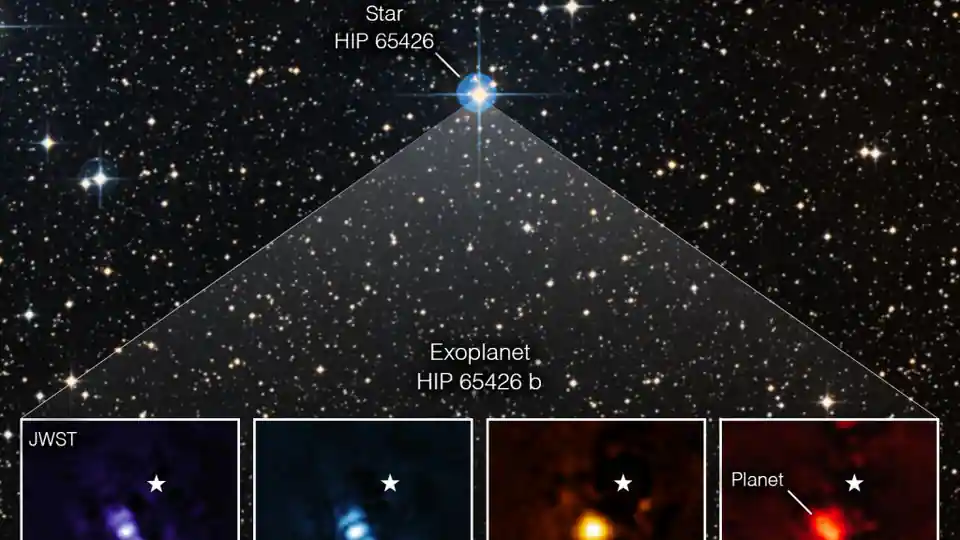In an astronomical breakthrough, the James Webb Space Telescope (JWST) has unveiled a remarkable find—Jupiter-sized planets drifting alone in the vastness of space, devoid of any gravitational ties to stars. This groundbreaking revelation comes as the result of a detailed survey conducted by the telescope in the renowned Orion Nebula, located a mere 1,400 light-years away from Earth.
Approximately 40 pairs of these celestial objects, dubbed “Jupiter Mass Binary Objects” or “JuMBOs” for short, have been observed in the Orion Nebula. What sets them apart is their apparent companionship as they traverse the cosmos, a phenomenon that has puzzled astronomers and researchers alike.
Astronomers are currently grappling with the enigmatic nature of these JuMBOs. One prevailing theory suggests that they may have originated from regions within the nebula where the material density was insufficient to facilitate the formation of fully-fledged stars. Alternatively, these objects might have initially formed in close proximity to stars before being ejected into interstellar space due to various gravitational interactions.

Prof Mark McCaughrean, the European Space Agency’s senior science adviser, expressed that the favored hypothesis at this juncture is the notion of ejection from star systems.
It’s important to note that the existence of free-floating planets, also referred to as orphan planets, is not entirely unprecedented. A collaborative survey conducted by Japan and New Zealand in 2006 and 2007 unveiled evidence of up to 10 free-floating planets, roughly equivalent in mass to Jupiter, inhabiting the heart of the Milky Way galaxy. These isolated celestial bodies had remained elusive until then, highlighting the complexity of their detection.
The discovery of JuMBOs by the JWST marks a significant stride in our comprehension of planetary formation and evolution. This revelation holds the potential to inspire further research and exploration in this captivating field, promising new insights into the mysteries of our universe.
As we delve deeper into the cosmos, the quest for understanding the origins and existence of such celestial wanderers fuels our curiosity, driving us to unravel the secrets of the cosmos.
Resources:
1.https://www.bbc.co.uk/news/science-environment-66974738.amp
2.https://www.bbc.co.uk/news/science-environment-66974738
3.https://science.nasa.gov/science-news/science-at-nasa/2011/18may_orphanplanets/
4.https://www.jpl.nasa.gov/news/free-floating-planets-may-be-more-common-than-stars